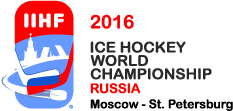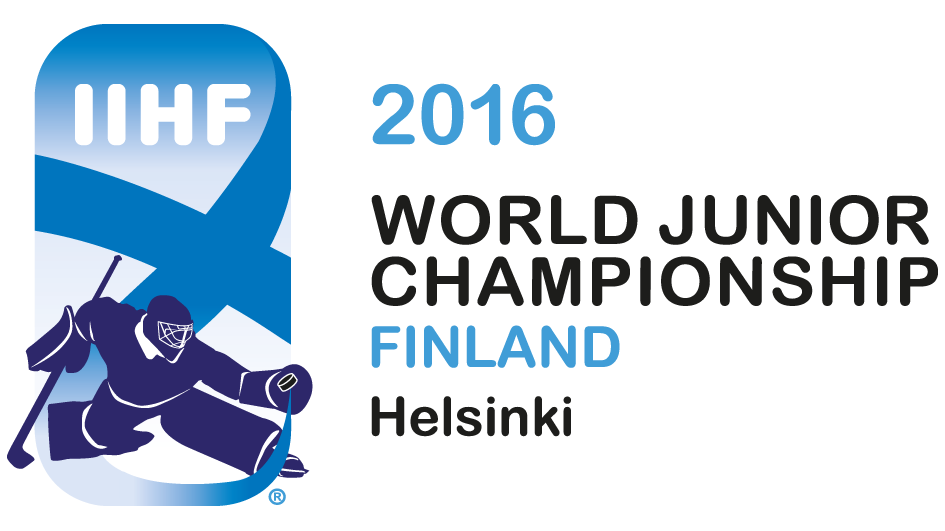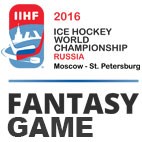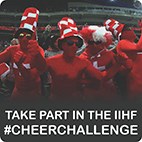Peter’s passion
Peter’s passion
Gebei a rare Hungarian ref

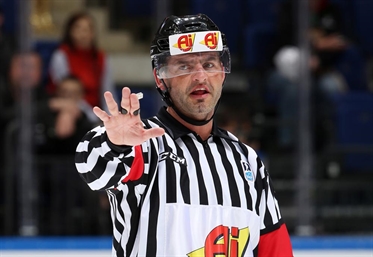 MOSCOW, RUSSIA - MAY 14: Referee Peter Gebei signals to the benches during Norway vs Sweden preliminary round action at the 2016 IIHF Ice Hockey World Championship. (Photo by Andre Ringuette/HHOF-IIHF Images)
MOSCOW, RUSSIA - MAY 14: Referee Peter Gebei signals to the benches during Norway vs Sweden preliminary round action at the 2016 IIHF Ice Hockey World Championship. (Photo by Andre Ringuette/HHOF-IIHF Images)
That sums up the remarkable rise of a young man from Dunaujvaros who played hockey at in the top Hungarian league and in the second tier with the national team but who has risen through the ranks to referee at the highest level. His is a story of passion and ambition, determination that goes beyond the borders of a country until recently little known for ice hockey.
“I started skating when I was six and played on every national team – under 12, 14, 16, 18, 20,” Gebei says as he begins the story of how he became one of the 16 men to referee at the 2016 IIHF Ice Hockey World Championship. “I was a tough, nasty defenceman,” he continues, with a chuckle. “I’d push players from in front of our net. I wasn’t a goalscorer or skilled player. I was tough, dirty!”
Gebei, who will turn 40 at the end of this month, played at the U18 for Hungary, once in C Pool, once in B Pool. He also played at the U20 (C Pool) and the 1999 World Championship (B Pool) and again in Division I (newly-named B Pool) in 2002, his last year in international hockey as a player. Two years later he finished his career with his club team in Dunaujvaros.
“I was a pro for ten years in the Hungarian league,” he continued. “The last year we had problems with management. They didn’t have money, and we’d get paid only every three or four months. Over time, that got to be a big problem for me and my family. I have a wife and two kids, Gergely who is now 16 and Bence who is 13.”
“When Bence was born, in 2002, I had to make a choice. I could either continue to play hockey, which I loved but was difficult because of the pay, or I could get a ‘real’ job.”
So Gebei left the game – the fans, the arena, the excitement – and got a job in the outside world at the ripe old age of 28. Several jobs, actually. He was a mailman for a while. He drove a taxi, worked in a fruit market. Finally, he got a job with a steel company and worked his way up through the ranks.
But something was missing.
“Every night I came home, I felt unhappy,” he said. “I missed hockey. All my friends still played. I missed the crowds, everything. So I became a linesman. I worked in the Hungarian league and learned.”
Gebei became a candidate for IIHF competition quickly. Within a year, he was involved in the international game.
“I worked my first IIHF tournament in 2003, as a linesman, in Division III in Ireland,” he continued. “My supervisor, Nould van Berkel from the Netherlands, talked to me after and said that I skated well, I was in good shape. He said I should focus on becoming a referee.”
Gebei took that advice to heart, and as he did with everything, he set lofty goals for himself and started on a relentless path to achieve them.
“I worked my way up step by step by step,” he said passionately. “Everything in life I always asked myself, what is my dream? What is my goal? For me, the answer is always ‘first place’. There are only about 30 or 40 referees in Hungary, so I kept telling myself the goal was to be the best. I’m going to be the best. I kept telling myself that.”
With crazy determination, he had a goal and a personality to match. All he needed was time and patience. “I worked every day on the ice and in the gym with my kids. I worked on positioning, my skating, everything. My focus was to be a referee in the top division for the IIHF. My friends thought I was crazy. ‘You live in Hungary. You’re 31 years old. No chance’ they’d say.”
“I always believed I had a chance. I just needed experience,” he went on, with the friendly defiance of someone who has walked through the flames. “I worked my way up to the Swiss league and the DEL and learned how to be a better and better referee. I’d referee games and ask supervisors to come and watch me, tell me what I’m doing well or not. It was such a big help.”
Gebei laughed when comparing life on ice as a player versus referee. “As a player, it’s easy,” he recalls. “You win, and everyone claps and loves you. You’re a star! As a referee, your goal is for no one to notice you. You go back to the dressing room, you wake up in the morning, and no one says a word on the radio or TV! That’s how you know you’ve done a good job. The referee is never the hero. It’s not easy.”
Gebei worked his way up the IIHF ladder, finally refereeing at the top level of the 2012 and 2013 U18 tournaments. The penultimate step to his dream came last February. “I worked the Olympic qualification in Sapporo,” he explained. He had a good tournament, and what followed changed his life.
“The next weekend after the tournament, I got an e-mail from Konstantin Komissarov at the IIHF with the names of the 16 referees for the World Championship. When I saw my name, I realized my dream had come true! I didn’t sleep for 24 hours. My kids were so proud.”
One of the first notes of congratulations and good wishes came from Laszlo Schell. Schell is a member of the IIHF Hall of Fame and the last Hungarian to officiate at the World Championship (1977-82). Indeed, only two others from their country have ever reffed at the top level of World Championship competition – Istvan Huvos in the 1940s and Geza Lator in the ‘30s.
Gebei started this year’s tournament in St. Petersburg, and he recalls the emotions of his first game. “It was Belarus and Finland. For the first two minutes my heart was pounding. I was telling myself how much I just wanted to stay in the top division. But then, I settled down, and I cleared my mind, and it was no problem.”
Of course, once you achieve a dream, you set the bar higher and dream bigger. Now that he is here, Gebei, like any referee, wants a playoff game, a medal game, THE game.
“I never say never, but I understand I have to wait,” he said with a patience he has cultivated. “Three years ago, I told Konstantin Komissarov I was ready for the top division. He said he agreed, but that I had to wait. Step by step. Nothing is easy. I’ve done the preliminary round, and I think I’m ready for quarter-finals, but we’ll see. We have 16 referees here and they are perfect. They’re so professional. There’s no talk about who’s better or who’s the best. It’s a big family. If I go further now, I go. If I don’t, I don’t.”
And if at some point in his career – this year or next, or five years from now – he gets the whistle in a gold-medal game, what is his dream matchup? “That’s easy,” he responded immediately. “In Europe, I think the dream for every referee is to work the gold-medal game with Russia against Canada. For sure. When I was a boy playing in the street, I was always Canada and my brother was always Russia.”
For now, Gebei is here to ref and learn, take in the tournament, do well and not be noticed by anyone except the IIHF’s referee supervisors – and wait. He stopped working for the steel company three years ago and is a full-time referee in the Austria-based EBEL, pursuing his passion.
“I worked step by step, and now I’m here. This is a great moment in my life. I could never play in the top division as a player, but I’m here as a referee.”
Back to Overview

